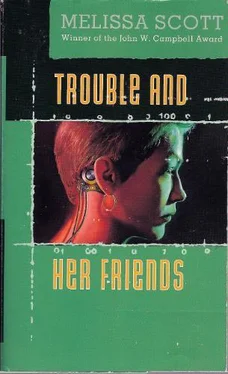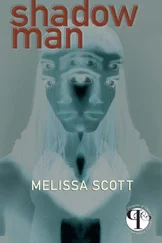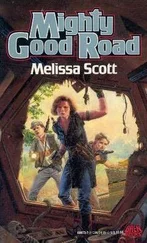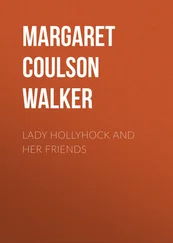The wind had risen since the afternoon, curled in as she opened the door, bringing the smell of the wet streets and driving a handful of tattered leaves around her ankles. Cerise shivered, tucking her chin down into the coat’s high collar, then had to reach back to pull the door shut behind her. She jammed her hands into her pockets, wishing she’d remembered gloves, and tore the lining again where she’d cut the pocket for a borrowed gun. This wasn’t a particularly bad part of town, no more than most, and better than some, but there had been times when she needed a gun’s threat to balance the odds. Or to get them out of whatever Trouble had talked them into. It hadn’t happened often—Trouble was generally reasonable, cautious—but every now and then she’d accept a challenge, even one that hadn’t been meant, and they would all have to live with the consequences. Like now.
Cerise shook the thought away, the memory of Trouble furious and confident, facing down a pair of local boys with knives. She had downplayed it later, always pointed out that the kids had been maybe thirteen, fourteen years old and obviously trying their first mugging. But Cerise had never forgotten the crazy grin, the sheer, black-hearted determination, and had been, herself, more than a little afraid. She had caught the look again four months ago, when Evans-Tindale passed the first time, and had done her best not to see it. Trouble had said then that she was quitting, that they couldn’t go on if the bill passed, and she had obviously meant it.
It was almost dark out now, and all the streetlights were on, swaying gently in the cold wind. Cerise shrugged herself deeper into her heavy coat, stepping more quickly across the moving shadows, heading for the nearest subway station at the corner of Elm and Cass. Not that it was all that far to Marco Polo’s, less than a dozen blocks, but it was cold, and dark already, and the secretary gangs, the dollie-girls, tended to lurk on the fringes of New Century Square. As she came out into the brighter light of the intersection, however, she saw the lines waiting beyond the ticket booths, men and women huddled into drab, windproof coats, here and there the brighter cloth of a student uniform, and she muttered a curse under her breath. The system was backed up again—it had never been built to handle the current loads—and she could easily walk to the Square before she even made it down onto the platform. She lengthened her step, heading up Cass into the teeth of the wind.
Once she had passed the intersection, with its bright lights and the low-standing brick station, foot traffic thinned out. This was mostly small shops and offices, all of which closed promptly at five to let their people get out of the city-center before full dark, and the doors and ground-floor windows were barred, steel shutters or heavy grills drawn tight over their vulnerabilities. Security lights showed like blue pinpoints in the corners of a few windows, and there were metal mesh sleeves across the swaying streetlights, casting webbed shadows over the pooled light. A few of the lights were broken anyway, leaving patches of greater dark, and she crossed them warily, wondering if she’d been stupid after all. But she was already past the bus lines at Stadium Road—not that they were running, it wasn’t a game night—and it would take longer to walk back to the station than it would to keep going. She could see the lights of the Square in the distance, the haze of gold neon bright at the end of the street, the gold-and-red bars of the Camberwell Beer sign just visible between a pair of buildings: only another four or five blocks to go, and she’d be in the relative safety of the crowded Square. She kept walking, not hurrying, glad of her soft-soled shoes and the dark coat that helped her pass unobserved, and reached the end of Cass without encountering another pedestrian.
New Century Square was as busy as ever, lights glaring from the subway kiosk at the center of the circle, more light, red and gold and green neon, flashing from the signs and display boards that ringed the Square, and from the signs that glowed and flickered over the myriad doorways. The gaudy lights helped to disguise buildings that hadn’t been new eighty years ago, when the century turned and the Square had been rechristened in hopes of attracting a new clientele for the new years. Maybe half a dozen suits were standing outside the station, staring up at the news board and its displays—currently a pretty dark-skinned actress showing teeth and tits and a new shampoo. There were more suits inside the ticket booths, men and women alike looking tired and irritable, and Cerise guessed that the system still wasn’t running properly. A handful of dollie-girls were hanging out under the awning outside the discount store, watching the suits. The youngest looked twelve or so, the oldest maybe sixteen, and each of them wore a parody of a corporate suit—the skirts too short, slit thigh-high, the jackets too tight and sexy, their faces layered with clown-bright makeup. Their shoes, bright neon-satin pumps, had three-and four-inch heels sheathed in steel, and there would be flip-knives and maybe a gun or two in the sequinned handbags. They belonged to the secretarial so-called college over on Market Street, Cerise knew, kids who had indentured themselves to the school and its placement service to get the implants, dollie-box and dollie-slot, that could eventually win them a decent job with a corporation. They had found out too late, they always found out too late, that they didn’t automatically get the training or the bioware that would let them walk the nets, or even use the systems to their full capacity. It was no wonder they took to the streets to get a little of their own back. She had been one of them, eight years ago, before she’d figured out how to get into the BBS and found the grey-market dealers there, and she gave them a wide berth, knowing what they, what she, were capable of doing. She was aware of their stares as she passed, the anger buried under the troweled-on color, and ignored it, knowing better than to meet someone’s eyes and trigger a confrontation. Trouble would have laughed—if she was in one of her difficult moods, she would have said something, anything, earned her name yet again. But then, Trouble had somehow never learned to lose. How she’d managed that, Cerise didn’t know, even after four years together working the nets, and three years as lovers: she wasn’t corporate, and besides, the corporations taught you early to lose to them. But she sure wasn’t city-trash, either.
She heard the click of heels behind her, steel on stone, and then a second set of footsteps, the same sharp almost musical clink not quite in synch with the first, and did not turn. The wall of a store rose to her right, solid brick banded with neon: no place to run, except into the street and the traffic, and that would mean losing anyway. The skin between her shoulder blades tingled, an electric touch at the center of her spine. She had played the game before, knew exactly what was happening, and then she heard the voices, rising shrill to be certain she, and all the others, heard.
“—that hair.”
“Pull it out, girl.”
Cerise turned then, the fury rising in her, caught the dollie-girl by the lapel of her too-tight jacket, swung her sideways into the brick of the wall. The girl staggered, losing her balance on the high heels, and Cerise hauled her up bodily, using both lapels this time, and slammed her back against the bricks, narrowing missing a light tube. She caught a glimpse of the second girl, mouth open in shock, falling back a step or two at the sheer craziness, and looked down at the girl in her hands. She hung dazed, one button torn loose, her eyes unfocused and filled with reflex tears. Cerise shook her, not caring that her head bounced off the bricks, felt her scrabble without result for safer footing.
Читать дальше












